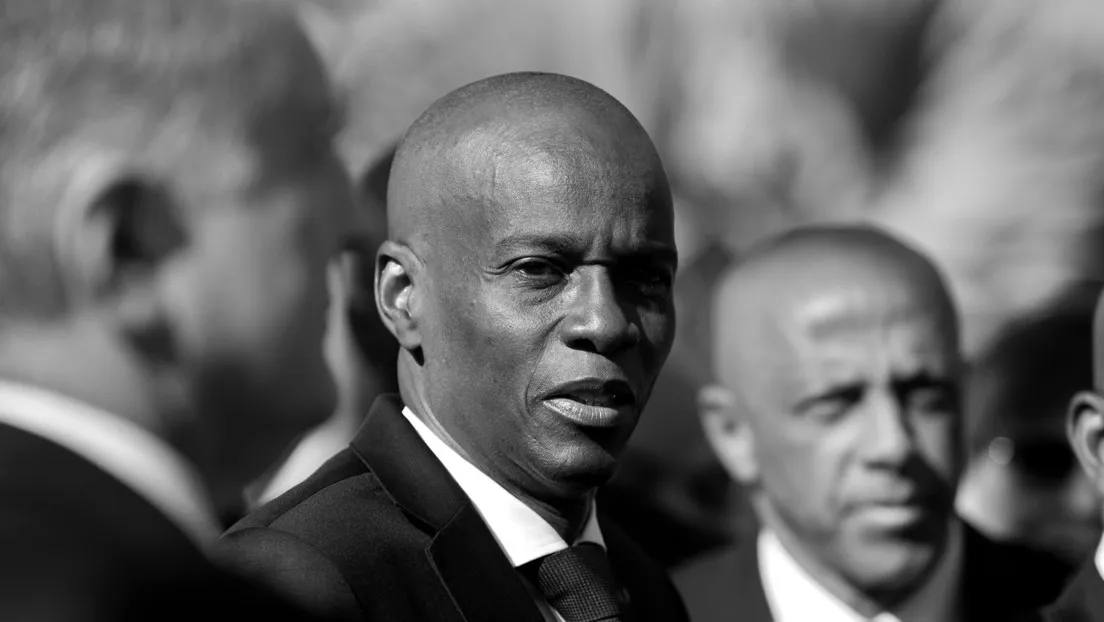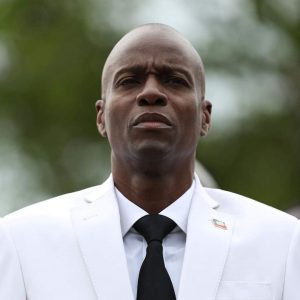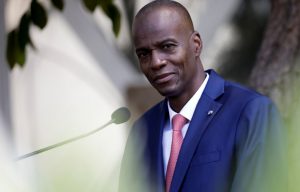
Jovenel Moise, Remembering the Man
“God, who knows our most secret thoughts and who sees all, is witness to the purity of my principles. They are not founded on this barbarous ferocity that takes pleasure in shedding human blood”. Toussaint Louverture
Those closest to Jovenel could vouch for the sincerity of his principles. One valuable lesson I gleaned from him is the unwavering commitment to maintaining one’s dignity and principles, irrespective of the desire for approval. He possessed a self-assuredness that allowed him to stay true to his convictions, even in challenging times. Recognizing the difficulties inherent in governing a nation like Haiti, he embraced the challenge with readiness. Jovenel’s profound love for his country drove him not only to risk his life but to sacrifice it, envisioning a Haiti that would fulfill its promises. He courageously faced death to safeguard democracy, dedicating himself entirely to the cause. Jovenel Moise exemplified honor, displaying unwavering loyalty to his country, fulfilling his duties, upholding the constitution and the laws of the Republic, and honoring his oath to his fellow countrymen.
Conviction and Perseverance
When Jovenel took a firm stance on various issues, even those he knew could ultimately lead to his downfall, he did so fearlessly. In the spirit of Toussaint Louverture’s eloquent words, “It is not a liberty of circumstance, conceded to us alone, that we wish; it is the absolute adoption of the principle that no man, born red, black, or white, can be the property of his fellow man.” Jovenel refused to be reduced to a mere possession or a puppet for others, even if it meant they would become his oppressors – the oppressors of the nation.
His sole aim was to serve the people. Beyond repairing existing roads, he aspired to build new ones. His vision extended to providing electricity to areas in the country that lacked it. Jovenel openly exposed the misuse of government funds by the elite to the people of Haiti, earning him additional adversaries.

What I find most admirable about President Jovenel is his ability to maintain a sense of humor, dignity, and a healthy self-awareness in the face of relentless and malicious criticism during his presidency in Haiti. While it’s not uncommon for leaders to be accused of corruption, ignorance, extreme partisanship, or arrogance, Jovenel faced a unique level of scrutiny. The criticism went beyond alleging that his mistakes were detrimental to Haiti; it contended that he was intentionally working against the very people he had pledged to serve.
Every president encounters fringe elements of criticism, but in this case, the dissent came from individuals holding elected offices—those who were meant to collaborate with him for the betterment of the country.
The mere fact that Jovenel had conducted himself so well during his presidency and kept his eyes on the prize is worthy of respect.

Change
He sought comprehensive change in the administration of the country. During his term, the Haitian media propagated the notion that Jovenel failed to fulfill his promises and was as corrupt as those who came before him. Following his assassination, it became clear that no one had ever faced dire consequences for working against the interests of black people or engaging in the corruption that had plagued Haiti.
Now, there is a collective understanding of what he truly stood for.
Now, everyone acknowledges his greatness as a leader.
Now, everyone comprehends his impassioned call for change.
Now, there is a sudden realization of the dream he envisioned for his country.
He aimed to grant the Haitian diaspora dual citizenship, empowering them with more influence and opportunities to invest in Haiti. His goal was to dismantle the corruption perpetuated by the wealthiest families in Haiti, who had impeded the progress of the people for years. He stood against those financing gangs in Haiti, entities that consistently sowed crisis, chaos, and insecurity in the capital by senselessly taking innocent lives.
Reflecting on his tenure, I recall his competence. Thinking back to his presidency, I remember it as the first time I trusted a Haitian president, not because of any familial connection, but because he genuinely desired to witness the prosperity of the country.

He aimed to provide children with free access to education and healthcare.
He aspired to ensure universal access to electricity for all.
He desired to equip his fellow countrymen with the resources necessary for cultivating the land.
He sought to make clean water accessible to everyone.
He worked towards creating job opportunities that would be accessible to all.
He was committed to environmental protection.
He advocated for the Haitian diaspora to return home and invest in their beloved country by granting them dual citizenship.
I placed my trust in his leadership. His vision was for Haiti to regain its status as a hub for ecotourism and agritourism. I anticipated his continued resilience in the face of adversity, even from within his own party. We should expect our leaders to do what is right, even when it is difficult and comes at a high cost. He did just that, and it tragically cost him his life. Martine lost her husband, his children lost their father, his sisters lost their brother, and we lost our hero. Haiti lost its modern-day Dessalines.
Do you think Jovenel understood that one man could not change the corruption in Haiti?
Truly, I believe his objective was not to act alone; he sought to inspire change. Leadership embodies influence, and Jovenel aimed for the collective contribution of the people toward Haiti’s improvement. On numerous occasions, he reassured them that he would exert his utmost effort to dismantle the system designed to keep them in chains—a system crafted to instill fear and powerlessness. Despite his intentions, the media portrayed him as an adversary to the people.
“In overthrowing me, you have done no more than cutting down the trunk of the tree of black liberty in St-Domingue—it will spring back from the roots, for they are numerous and deep.” – Toussaint Louverture.
Aware of the risks to his life, Jovenel dared to hope that his countrymen would love Haiti enough to stand with him on the battlefield. Instead, they opposed him, betrayed him, and forsaking their oath to protect the country, delivered him to his enemies, akin to Delilah’s betrayal of Samson.
Recognizing that they couldn’t corrupt him and that he wouldn’t allow them to deplete the country’s resources for their own enrichment, while keeping the poor impoverished, the corrupt figures decided it was time to eliminate him.
Unable to tarnish his character, they resorted to plotting his murder.
Throughout, I never once questioned his integrity, honor, or the genuine love he held for Haiti.
When’s the next time we can say that again?
Beyond the realm of politics, he is renowned for his charisma, eloquence, empathy, and humility. His love for family and country is evident, complemented by a deep understanding of people. Possessing the essential qualities every president should uphold—ethics and good behavior—he exemplifies the ideal leader.
Yet, I witnessed him make sacrifices far surpassing the rewards he received.
If he were still among us, he would undoubtedly remind us that sacrificing for one’s country is a source of pride.
Despite relentless attempts to extinguish his dream and aspirations for his country, they failed to grasp the depth of his roots. Jovenel was not merely a tree; he was a tree with numerous branches. Though taken from us prematurely, his legacy will endure. He was undeniably the choice of the Haitian people when they elected him, a leader par excellence.
His Excellency continues to inspire me:
- Through his composure under pressure.
- Through his fearlessness in defying the prevailing trends.
- Through his ability to empower others (often overshadowed by a corrupt media).
- Through his capacity to connect with the people.
- Through his articulate expression of his vision for Haiti.
- Through his captivating presence before an audience.
- Through his unwavering passion for change.
- Through his compassion for his fellow men.
- Through his remarkable dignity.
- Through his honesty.
- Through his unwavering honor.
“You can kill the dreamer, but you can’t kill the dream.” – Martin Luther King

Our nation’s preeminent dreamer was assassinated, has the dream died as well? Now that his dream has encountered a new set of unseeable set of roadblocks, would the dream be strong enough to continue on life support? Who has what it takes to take his dream of life support? Is it even worth it to continue to fight for a nation, for a people that do not necessarily want to move forward? Who does not understand the dream?
Jovenel was our dreamer. He was our dream. The dream must survive after the slaying of the dreamer. We must continue towards progress toward the dream. It is on our shoulders now. While the dreamer has been killed in the hope that the dream would also die with him, we must fight to keep his dream alive. It is no longer about who he was, but about who we are and who we want to be as a nation.
Thanks for your dream, your love, and your service Mr. President.
***Disclaimer. This is not a political post. This is a tribute to President Jovenel Moise, my cousin. You are not required to agree with my views.

Pallbearers in military attire salute next to a coffin holding the body of late Haitian President Jovenel Moise after he was shot dead at his home in Port-au-Prince earlier this month, in Cap-Haitien, July 23, 2021. REUTERS/Ricardo Arduengo
Read Dear Mr. President http://cecemoise.com/dear-mr-president/
Comments (0)